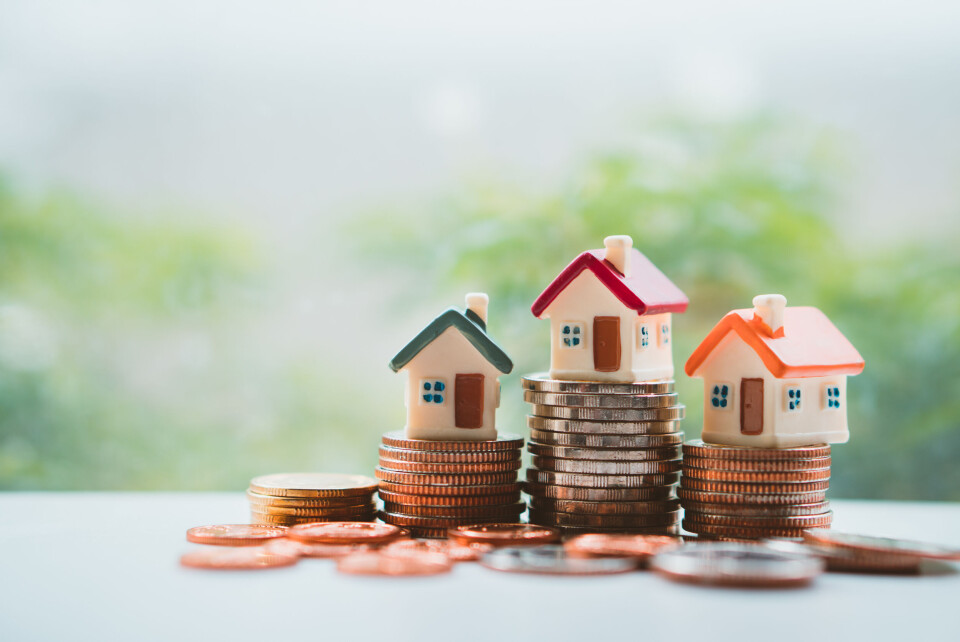-
France to reform DPE 2026: better ratings for electric-heated properties
New co-efficient will be used to calculate a property’s category
-
French holiday rental property energy rating requirements to change
Other changes including some related to tax also come into force
-
Does a pool still add value to French property despite water restrictions?
An increased selling price might look attractive but do not forget running costs, increased taxes and water bans
Small towns escape price rise slowdown: French property market trends
Some smaller towns are still seeing rises of almost 20% in a year. We also look at the effect of energy ratings on the market

After two years of dynamic movement, rising inflation, mortgage rates and energy prices have begun a slow-down in the French housing market.
Estate agent network Orpi has observed, for example, that its sale numbers have returned to 2019 levels this year. However, Orpi’s president Guillaume Martinaud said: “Even if the number of buyers is declining, we will not be pressing the panic button. After two particularly dynamic years, we are observing a return to normal”.
In general, the number of sales completed in France in 2022 is still expected to top one million, after reaching 1.17 million in 2021.
Amid this slight deceleration, there are some trends which are beginning to emerge.
Read also: Self-heating homes, holiday lets: Five French property updates
Some price drops, some price rises
Property prices are coming down slowly in some urban areas including Paris, but are still rising in other smaller towns, such as Dax and Vannes, where they have increased by 19% over a year according to Orpi.
A Europe-wide study published in October by the Aviv group, which owns Se Loger and Meilleursagents, has suggested that this trend will continue in 2023.
It suggests that while Paris prices fell by 0.2% in 2022, they will come down by a further 3% in 2023, while medium-sized towns and rural settings see a 3-5% increase.
The pool of properties up for sale in big cities is also expected to keep rising as new legislation gradually bans the least energy-efficient homes from the rental market.
Read more: Home energy efficiency: Key dates for property owners in France
Non-energy efficient homes flooding into sale market
A growing number of homes with very poor energy efficiency ratings are entering the housing market as a result of the aforementioned rules on property rentals.
From January 1, 2023, people who own properties which consume over 450kWH per square metre per year – known as passoires thermiques in French – will no longer be able to rent them out.
This rule will extend to all G-rated properties from 2025, all F-rated properties from 2028 and all E-rated properties from 2034.
Within the Laforêt estate agent network, the proportion of properties which have an energy efficiency rating of F or G has increased by 11% since the beginning of the year.
In Ile-de-France, it is thought that 28% of properties on sale have low energy ratings, and are having to be sold at lower prices because of the renovation work needed to make them more eco-friendly.
For example, Sami Gaïd, director of the Stéphane Plaza Immobilier agency, told Le Monde: “An individual recently wanted to sell their G-rated studio at €180,000. After months of waiting, they had to reduce the price of the apartment to €129,000.”
It should be noted that mortgage providers are more and more aware of a property’s energy rating and will offer better rates for more efficient properties.
For properties with low ratings, the lender may also ask the buyer to take out an additional loan for the renovation work needing to be done.
Mortgage rates rise
At the beginning of 2022, a 20-year mortgage would normally come with a rate of just over 1%, according to tracker Crédit Logement CSA.
However, between now and June 2023, this figure is expected to reach 2.8% on average, with all mortgage terms included in this estimate.
This comes at the same time as banks tighten their lending conditions. The Haut Conseil de stabilité financière has asked banks not to allow people to take on a debt which constitutes more than 35% of their income, and so it has become more difficult for some people to obtain a mortgage.
New properties growing more and more expensive
The price of new properties are estimated to have reached an average €4,827 per square metre, having increased by 5.8% between the second quarters of 2021 and 2022, according to the Fédération des promoteurs immobiliers de France (FPI).
This has led the Fédération française du bâtiment (FFB) to warn of a potential “collapse of the new property market”, as the number of houses entering the market has declined by 26.8% since the beginning of 2022.
“The risk in the new property market is the rarity of options and [good] prices,” Franck Vignaud of the Theseis Laboratoire immobilier said.
Related articles
‘Slowdown ahead’: Five French property trends from latest notaire data
Paris taxe foncière rates to rise by 50% next year
Why did I not obtain property tax exemption for new-build French home?
























